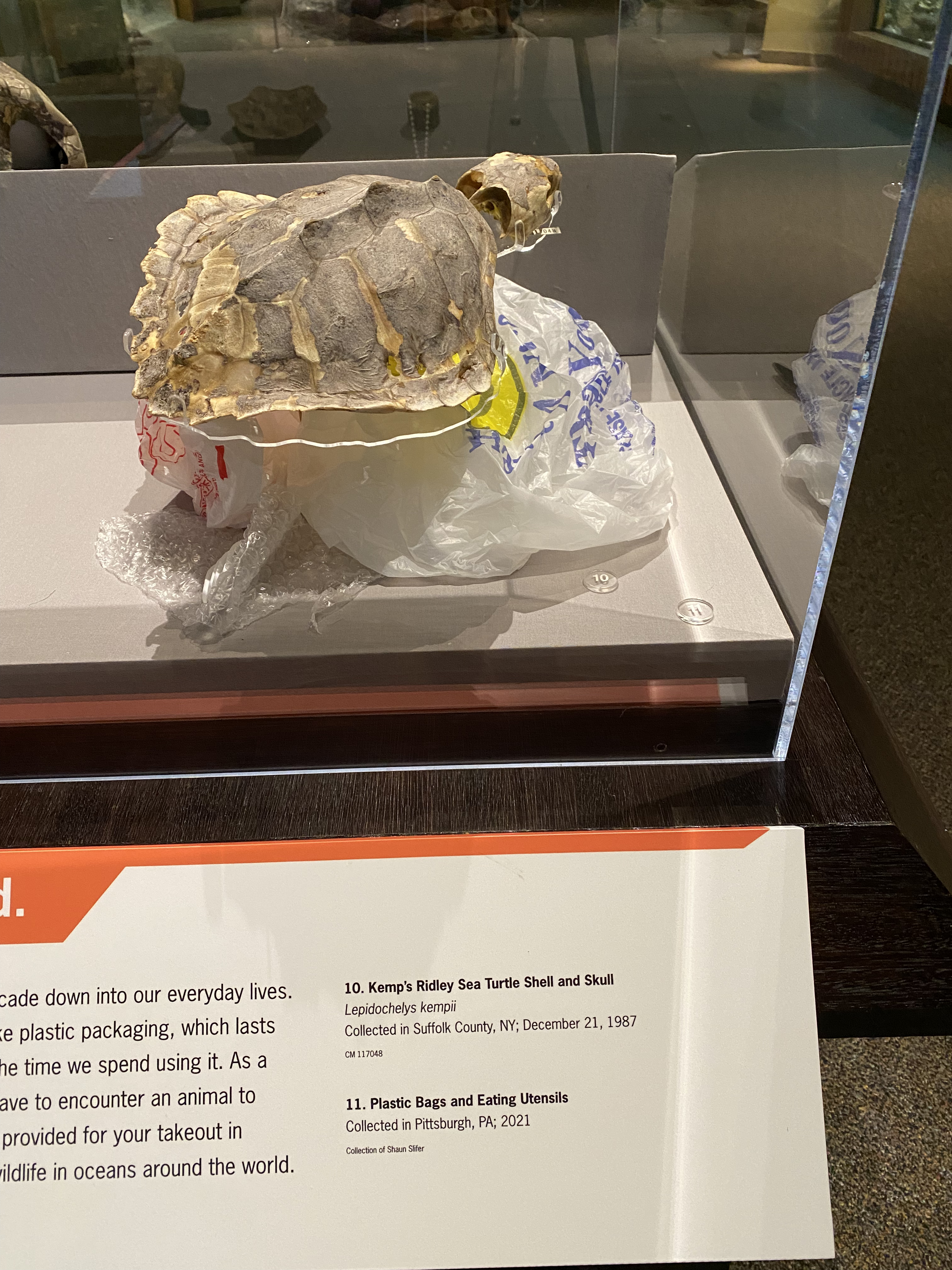
THE ANTHROPOCENE AT CARNEGIE MUSEUM OF NATURAL HISTORY
The Anthropocene studies section formed in 2018. The section organizes research, exhibition and education projects about contemporary social-environmental life as part of a broader museum initiative to catalyze awareness, dialogue and action for just-sustainability in Pittsburgh and the world.
The Anthropocene describes the proposed current geological epoch, when human activities dominate the functioning of the planetary system: land, oceans, air and water. This human-driven change is diminishing life on Earth, characterized by grand societal challenges such as Global Climate Change and the Sixth Mass Extinction. Impacts that will be present in the geological record millions of years from now, and today represent a crisis of sustainability, equity and justice. While geologists are debating officially when the Anthropocene starts, the museum has embraced the term as a cultural keyword and core thematic for engagement and research.
The section supports transdisciplinary investigations related:
- The social-scientific debate and development of the Anthropocene as a geological time period
- Scientific, philosophical and practical understandings of the relationships of humans and nature
- Social-ecological systems
- Biodiversity conservation in the Anthropocene
- Knowledge co-production for climate change resilience
- The future of natural history museums
- Anthropocene collections
- Environmental and climate change communication
Anthropocene Studies Collaborations
Climate and Rural Partnerships (CRSP)
The National Science Foundation has awarded Carnegie Museum of Natural History a $1,254,205 grant to develop the Climate and Rural Systems Partnership (CRSP), a learning network that connects and empowers Western Pennsylvania educators, scientists, and community leaders to address climate change issues with rural audiences. The award, which funds the project for four years, recognizes the museum’s commitment to engaging and studying the Anthropocene, the current epoch in which human activity profoundly influences planetary systems.
Carnegie Museum of Natural History will partner with the University of Pittsburgh Center for Learning in Out-of-School Environments (UPCLOSE) and the Mercer County Conservation District to create hubs at Munnell Run Farm in Mercer County and Powdermill Nature Reserve, the museum’s own environmental research center, in Westmoreland County. The hubs will coordinate professional development workshops, collaborative design sessions, and community gatherings for diverse groups of local stakeholders. Participants will examine and adapt existing environmental research data, biological collections, and climate change educational tools into salient, usable resources for engagement and learning.
Planet and People Global Alliance
The alliance is a growing network of museum professionals from around the world working together to share best practices, collaborate and motivate each other in Anthropocene engagement with the ultimate aim of driving change for a positive future.
Past Exhibitions
Anthropocene Living Room
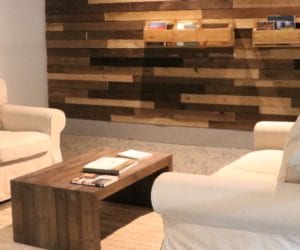
The Anthropocene Living Room was a space in the museum inspired by how humans have and will continue to shape natural history and nature. It included various elements including items from our collections, books, and other tools for reflection and learning.
We Are Nature: Living in the Anthropocene
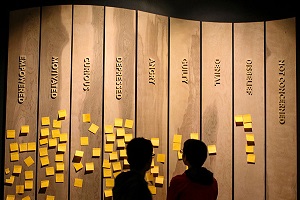
We Are Nature: Living in the Anthropocene was the first exhibition in the nation to focus on the Anthropocene as a concept and it was built entirely within Carnegie Museum of Natural History.
Research conducted by our museum scientists and specimens from our own hidden collections were featured in this interactive exhibition, which allowed visitors to understand the Anthropocene on their own terms, and ended by connecting visitors to activities that are already happening locally, pluging them into a bigger network of people who are collectively making an impact.
We Are Nature: A New Natural History
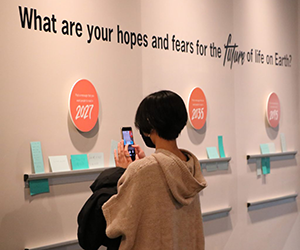
We Are Nature: A New Natural History was an original visitor experience that weaves stories across the entire museum into an interactive journey spanning from deep time to our own times.
Kwel’Hoy We Draw the Line
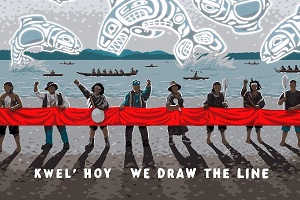
Carnegie Museum of Natural History hosted the traveling exhibition Kwel’ Hoy: We Draw the Line!, which explores the struggle of Indigenous leadership to protect water, land, and our collective future.
Related Programs
Birdsafe PGH
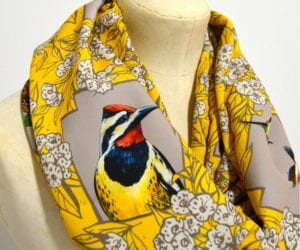
BirdSafe Pittsburgh is a partnership between Carnegie Museum of Natural History and seven other local conservation organizations working to research and reduce bird-glass collisions in the city. As many as a billion birds die annually from collisions with glass windows in the United States.
Products for Birdsafe Pittsburgh are tested at our research facility, Powdermill Nature Reserve in Rector, Pennsylvania.
Climate and Urban Systems Partnerships (CUSP)
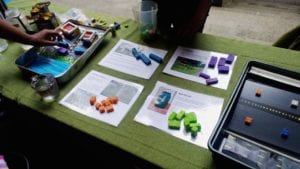
Climate and Urban Systems Partnership, or CUSP, is a national project, funded by the National Science Foundation and coordinated locally by Carnegie Museum of Natural History, that aims at changing climate conversations in urban settings. One of CUSP’s major goals is to tackle the overwhelming and somewhat scary topic of climate change and turning it into a digestible conversation for education.
2017 ICOM NATHIST Conference: Museums in the Age of Humanity
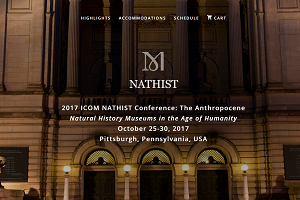
The 2017 ICOM NATHIST Conference hosted at Carnegie Museum of Natural History focused on the topic of the Anthropocene, specifically Natural History Museums in the Age of Humanity. This international conference sparked innovative discussion about emerging ideas among museum professionals about the future of natural history museums.
We Are Nature Podcast
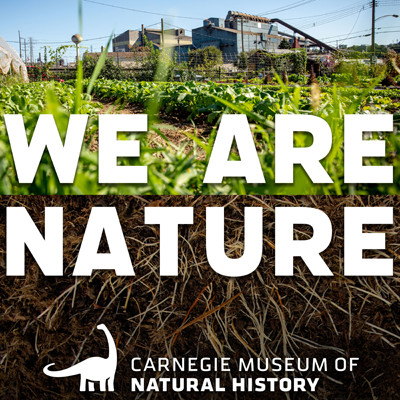
We Are Nature is an original podcast presented by Carnegie Museum of Natural History. We present stories about natural histories and livable futures with companion videos.
Season One is available now and centers around collective climate action.
Listen to Season One
Coming soon:
Season Two, “The Anthropocene Archives.” We’re raiding cabinets and cases, sifting through objects and organisms in search of stories of stewardship, solutions, and scientific wonder.
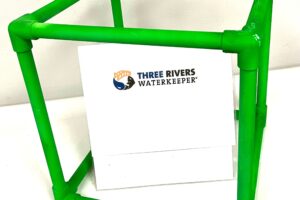
A Three Rivers Waterkeeper Biocube
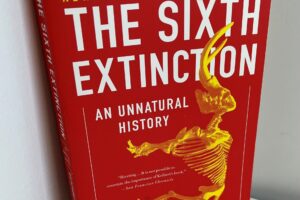
We Get Questions: Climate Change, Hope, and Action
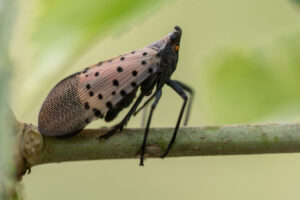
Do No Harm: Dealing with Spotted Lanternflies
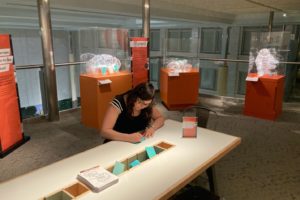
Messages in Tardigrade Plastic Time Capsules
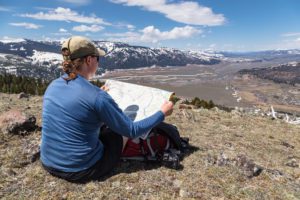
Reckoning with Indigenous sovereignty and US public lands through place names in national parks
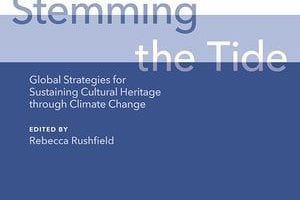
New Anthropocene Publication: Stemming the Tide

